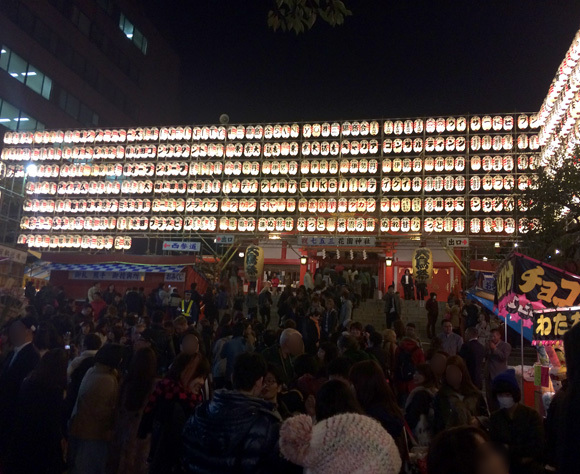
Japan’s urban and rural areas alike are dotted with temples and shrines, but there’s no practice of attending regular services at them. Instead, visitors primarily come to offer a few yen as a donation, say a quick prayer, and pick up one of the plethora of good luck charms and amulets sold there, many of which have specific purposes such as passing an important exam or finding a new love.
But every member of our team is already out of college, and so popular with the opposite sex that we’re starting to feel bad about not leaving any for the rest of the populace. Looking further down our to-do list, we noticed that “build mansion with supermodel grotto” was preceded by “achieve economic success,” so we decided to head to our local Shinto shrine for Tori no Ichi, Japan’s annual festival for buying good luck charms for success in business.
A short walk from the RocketNews24 offices, in the center of Tokyo’s bustling Shinjuku neighborhood, you’ll find Hanazono-jinja Shrine. Almost perfectly dividing Shinjuku’s polished shopping center district from its hard-partying bar and hostess club quarter, Hanazono-jinja is the sort of sudden cultural oasis that makes Tokyo one of the world’s best cities for exploring.
On most days, the shrine is pretty quiet, and makes a nice place to rest your feet if you’ve been running around downtown for the past few hours. However, for three nights each November at Hanazono-jinja, along with other shrines and temples across Japan, vendors set up stalls selling decorative rakes said to bestow prosperity and health to those who purchase them.
Last year, RoketNews24 purchased its first good luck rake, hoping for a bit of divine assistance in bringing our loyal readers interesting stories from around Asia. It’s been a pretty good year for us, enough so that we’ve even been able to add a few fresh faces to the team, so we decided to head back to the festival this year. We visited on its first night, called Tori no Ichi, to buy another.
Like many charms in Japan, the rakes are said to keep their effect for one year, after which tradition holds they should be returned to where they were purchased. As Shinjuku is one of Japan’s busiest office districts, Hanazono-jinja’s Tori no Ichi is packed each year, but we dove into the crowds in search of the craftsman who had sold us our rake last year, just as he had instructed us to do.
▼ We got a little sidetracked by the snack stalls…
▼ And the carnival games (we can’t be thinking about work all the time)
It’s often said that Japanese culture prizes understated aesthetics, and while this frequently holds true, it is by no means the case with kumade, the rakes sold at Tori no Ichi. Maybe it’s a sign of our endearing sense of child-like wonder (we keep telling people that’s what it is, and not immaturity), but last year our first instinct was to get the biggest, flashiest one we could afford.
It turns out though that bigger isn’t always better, though, and that there are some traditions to observe when buying your rake. As the vendor explained to us last year, when buying a kumade for your office for the first time, a smaller one is best.
The logic behind this solid. When you’re first starting a business venture, it’s best to be prudent with your spending and conservative with your expectations. Put your money and effort into steady, sustainable growth, and save the expenditures for things like espresso makers, ping pong tables, a bunch of PlayStation 4 consoles and extra-intricate kumade for until you’ve got a few years of steady profits pumping up your balance sheet.
There’s a similar protocol regarding the colored cord attached to the front of the rake. Early on, it’s considered best to buy one with a yellow cord, before leveling up to red, purple, and eventually reflective gold. Making a sudden jump in rank, or progressing out of order, is said to lessen or eliminate the effects of the kumade.
The preferred place to put the kumade is somewhere where it can be seen, and we’d been instructed to tell it o-tsukare sama desu (thanks for your hard work) and itte kimasu (we’ll be back soon) as we left the office each day.
While we were trying to track down the owner of the stall who’d sold us our rake last year, we imagined what type he’d recommend for us this time. Once we finally found him though, we were surprised by his suggestion.
“The same size as last year’s, with the same color cord, is your best bet,” he informed us. At first, we were a little disappointed. After all of the days and months we’d spent slaving away writing about video games and hamburgers, we’d been hoping for a red cord, at least.
But then we though a little harder, and we were moved by what he’d told us. The craftsman wasn’t telling us we hadn’t made and progress in the last year. Instead, he was encouraging us to keep working hard and stay hungry, even if we had already stopped for some oysters at one of the food stalls.
We were impressed by both his wisdom and selflessness, since buying a smaller rake meant less income for him. “Remember, the kumade is not a god,” he reminded us. “It might seem like a god, because it helps people, but the real god, the real ability to make things happen is inside of you.”
Touched by his words, we followed his advice and selected another simple kumade with a yellow cord. Leaving Hanazono-jinja, walking past people with far more ostentatious rakes than our own, we felt somehow humble and proud at the same time.
Sure, we still have a long way to go until RocketNews24 becomes the most trusted news source on Earth (seriously, why does anyone still turn to CNN when we can tell you so much more about the newest developments in instant ramen?). But we made it through the last 12 months OK, and as long as we keep at it, taking things one year at a time, eventually we’ll get there. And if you’re looking to pick up a kumade of your own, you’ve still got time, as the third and final night of the festival (called San no Tori) is November 27.
▼ Thanks for reading, and here’s hoping that cord is red next year!
Shrine information
Hanazono-jinja Shrine 花園神社
Tokyo, Shinjuku-ku, Shinjuku 5-17-3
東京都新宿区新宿5−17−3
Photos: RocketNew24
[ Read in Japanese ]

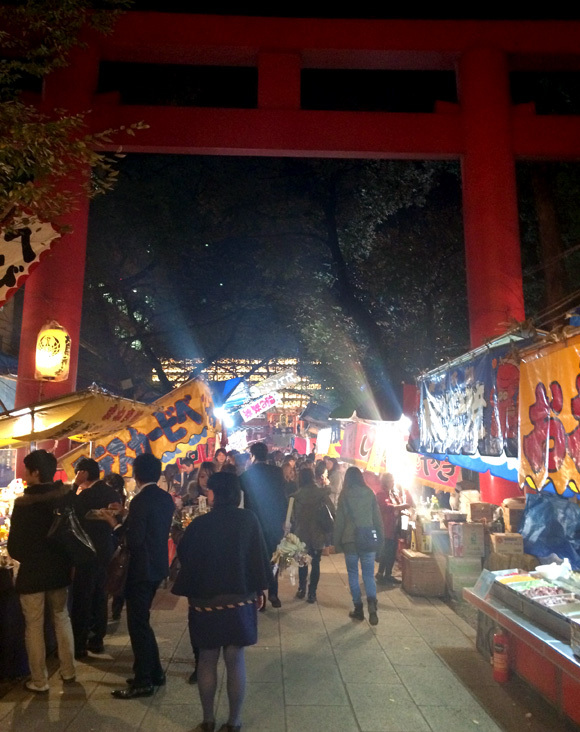
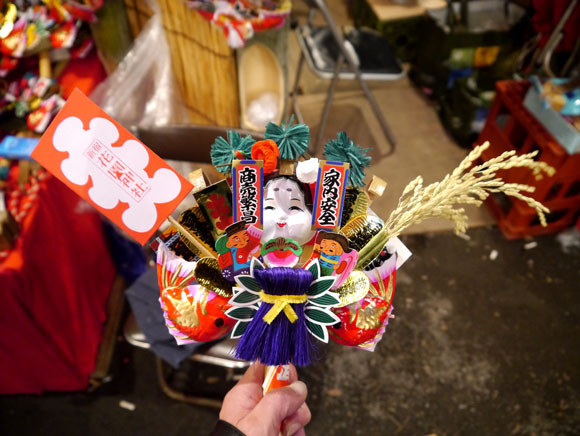
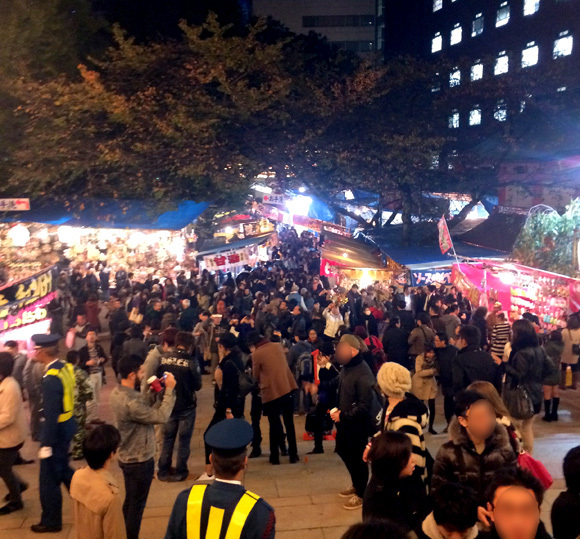
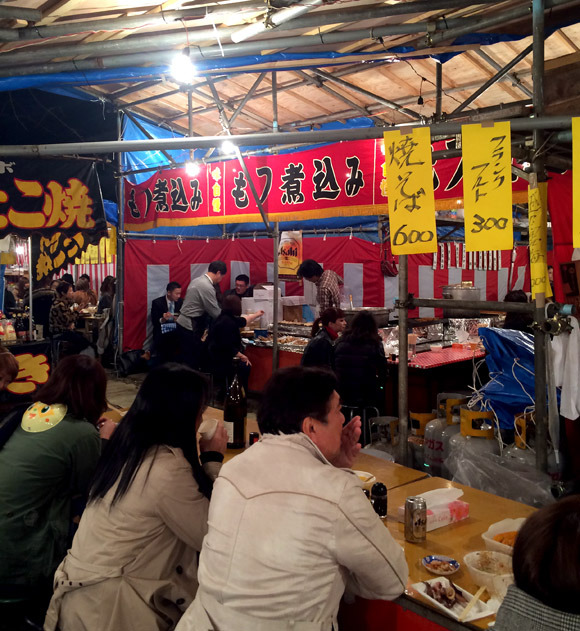
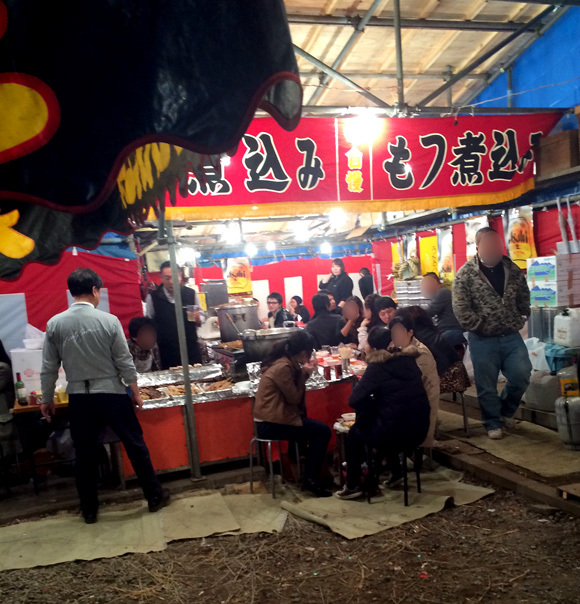
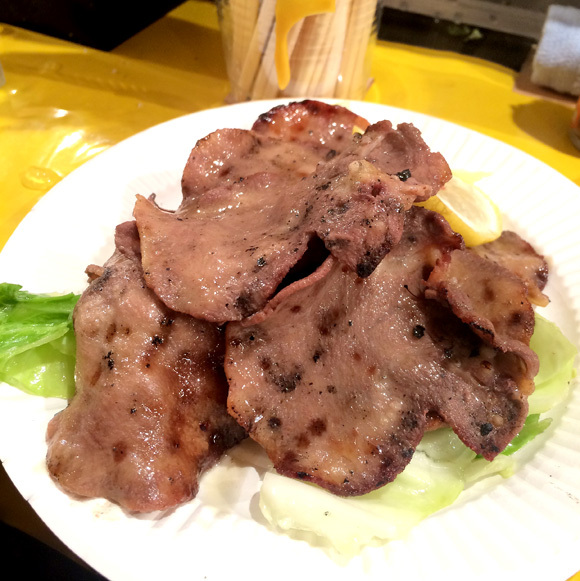
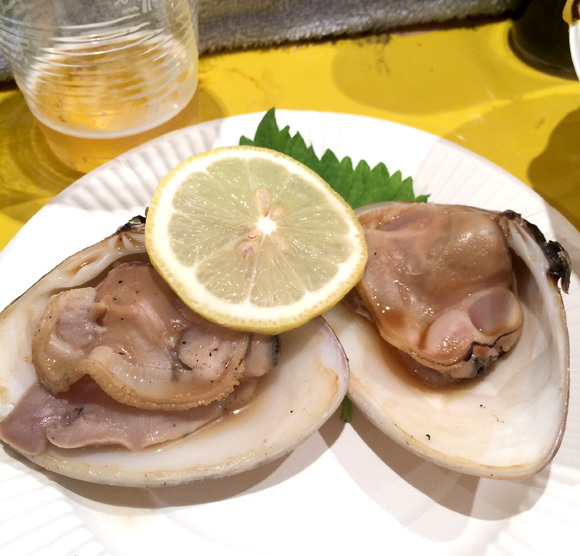
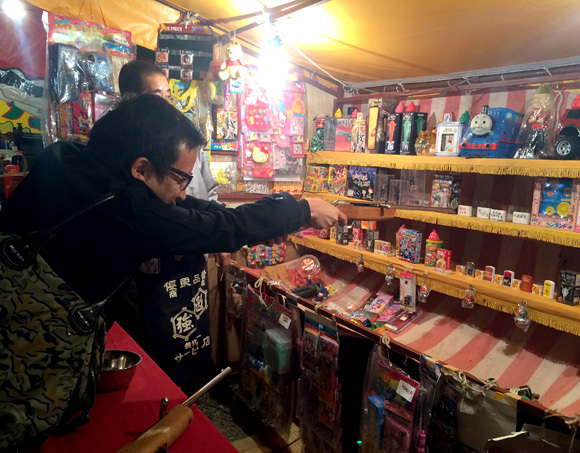
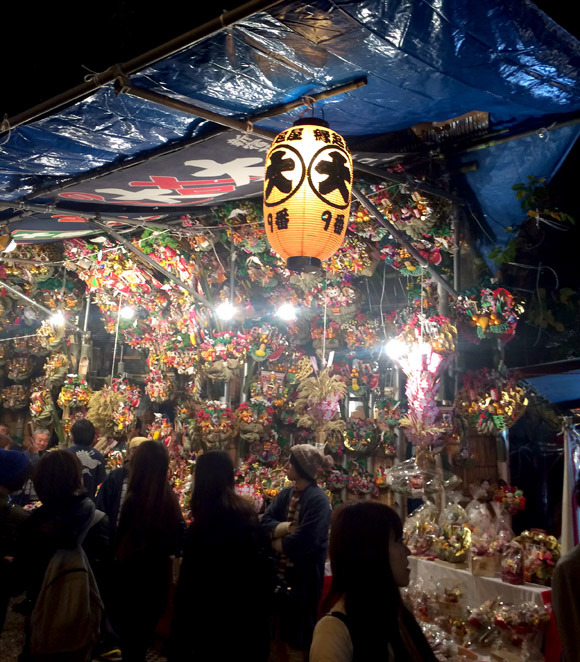
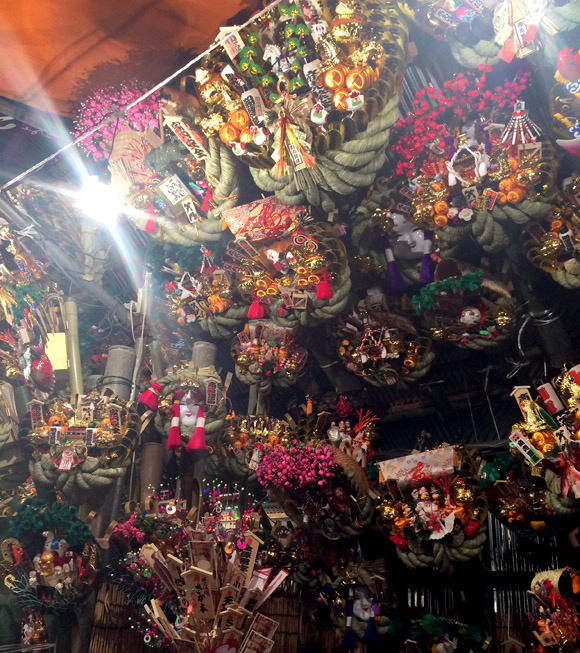
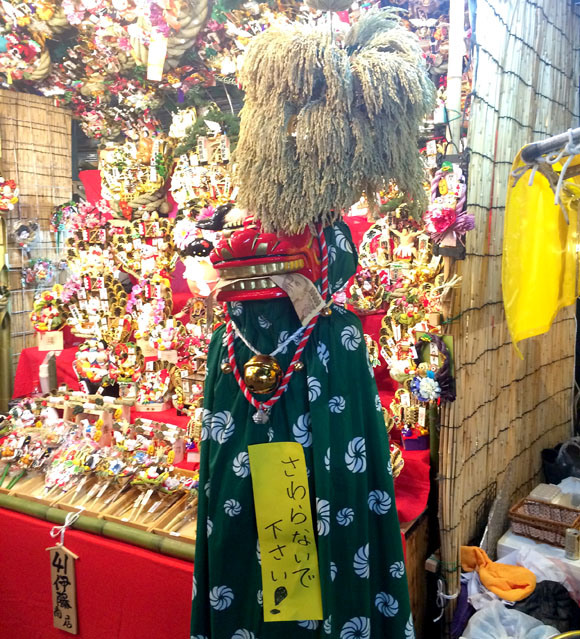
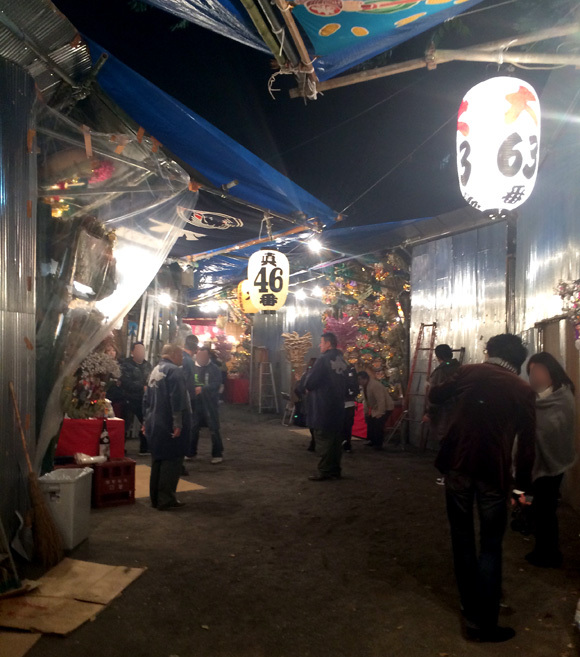
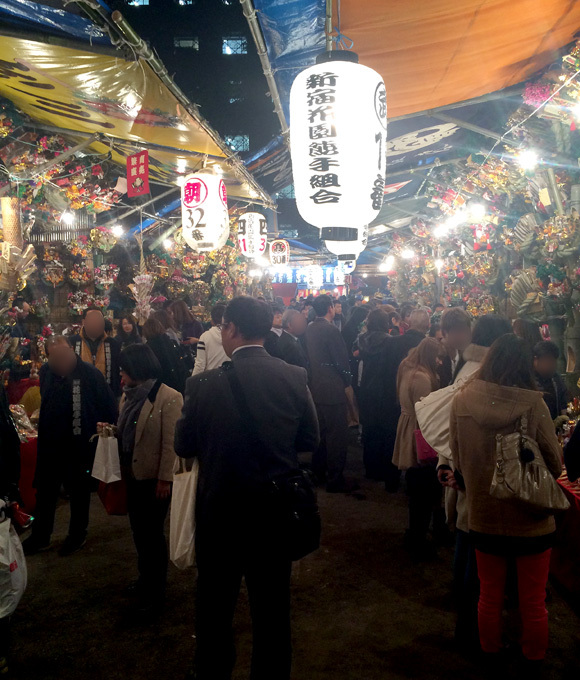
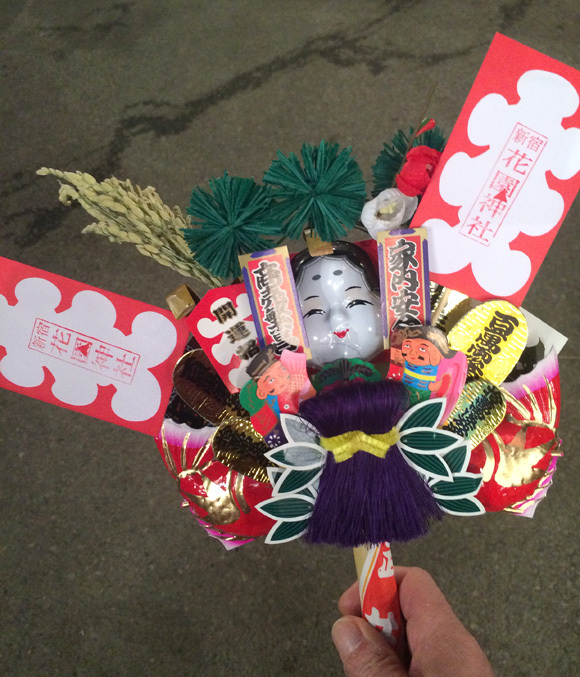
 Hanazono Jinja Shrine: Lanterns, stalls and rakes at annual Tori no Ichi cock festival in Tokyo
Hanazono Jinja Shrine: Lanterns, stalls and rakes at annual Tori no Ichi cock festival in Tokyo Our Reporter Learns a Thing or Two about Buying Good Luck Charms in Japan…
Our Reporter Learns a Thing or Two about Buying Good Luck Charms in Japan… One of Japan’s favorite traditional desserts almost breaks the spirit of SoraNews24’s Mr. Sato
One of Japan’s favorite traditional desserts almost breaks the spirit of SoraNews24’s Mr. Sato Thanks to the shogun, this Tokyo Shinto shrine has good luck charms to help you win idol tickets
Thanks to the shogun, this Tokyo Shinto shrine has good luck charms to help you win idol tickets Keanu Reeves teams up with Suntory for new series exploring Japanese whisky and monozukuri【Video】
Keanu Reeves teams up with Suntory for new series exploring Japanese whisky and monozukuri【Video】 Viral Japanese cheesecake from Osaka has a lesser known rival called Aunt Wanda
Viral Japanese cheesecake from Osaka has a lesser known rival called Aunt Wanda Tokyo street sweets: The must-snack treats of Nakano’s Refutei
Tokyo street sweets: The must-snack treats of Nakano’s Refutei Lawson adds doughnuts to its convenience store sweets range, but are they good enough to go viral?
Lawson adds doughnuts to its convenience store sweets range, but are they good enough to go viral? Japanese yokai spirits enter the modern era in Nagoya’s new digital art experience
Japanese yokai spirits enter the modern era in Nagoya’s new digital art experience To celebrate 7-Eleven Day, here are seven 7-Eleven Japan items that need more love
To celebrate 7-Eleven Day, here are seven 7-Eleven Japan items that need more love Cherry blossom mochi lattes arrive at Japan’s Pronto cafe chain to start sakura sweets season
Cherry blossom mochi lattes arrive at Japan’s Pronto cafe chain to start sakura sweets season Can we be just like Shohei Ohtani on a budget with a Hello Kitty cap?
Can we be just like Shohei Ohtani on a budget with a Hello Kitty cap? What happens if you feed pufferfish poison to pufferfish? Japanese scientists trying to find out
What happens if you feed pufferfish poison to pufferfish? Japanese scientists trying to find out The best Hobonichi diaries, covers and stationery for 2026
The best Hobonichi diaries, covers and stationery for 2026 Jamiroquai doll from Japan lets you control your own Virtual Insanity 【Video】
Jamiroquai doll from Japan lets you control your own Virtual Insanity 【Video】 Starbucks Japan releases first-ever Hinamatsuri Girls’ Day Frappuccino
Starbucks Japan releases first-ever Hinamatsuri Girls’ Day Frappuccino Japanese restaurant chain serves Dragon Ball donuts and Senzu Beans this spring
Japanese restaurant chain serves Dragon Ball donuts and Senzu Beans this spring Highest Starbucks in Japan set to open this spring in the Tokyo sky
Highest Starbucks in Japan set to open this spring in the Tokyo sky Japan Extreme Budget Travel! A trip from Tokyo to Izumo for just 30,000 yen [Part 1]
Japan Extreme Budget Travel! A trip from Tokyo to Izumo for just 30,000 yen [Part 1] Japan has only one airport named after a samurai, so let’s check out Kochi Ryoma【Photos】
Japan has only one airport named after a samurai, so let’s check out Kochi Ryoma【Photos】 Japan Extreme Budget Travel! A trip from Tokyo to Izumo for just 30,000 yen [Part 2]
Japan Extreme Budget Travel! A trip from Tokyo to Izumo for just 30,000 yen [Part 2] Japan’s craziest burger chain takes menchi katsu to new extreme levels
Japan’s craziest burger chain takes menchi katsu to new extreme levels Japanese drugstore sells onigiri at pre-stupid era prices, but how do they compare to 7-Eleven?
Japanese drugstore sells onigiri at pre-stupid era prices, but how do they compare to 7-Eleven? Yakuzen ramen restaurant in Tokyo is very different to a yakuza ramen restaurant
Yakuzen ramen restaurant in Tokyo is very different to a yakuza ramen restaurant Tokyo Skytree turns pink for the cherry blossom season
Tokyo Skytree turns pink for the cherry blossom season Japan’s newest Shinkansen has no seats…or passengers [Video]
Japan’s newest Shinkansen has no seats…or passengers [Video] Starbucks Japan releases new sakura goods and drinkware for cherry blossom season 2026
Starbucks Japan releases new sakura goods and drinkware for cherry blossom season 2026 Foreigners accounting for over 80 percent of off-course skiers needing rescue in Japan’s Hokkaido
Foreigners accounting for over 80 percent of off-course skiers needing rescue in Japan’s Hokkaido Super-salty pizza sends six kids to the hospital in Japan, linguistics blamed
Super-salty pizza sends six kids to the hospital in Japan, linguistics blamed Starbucks Japan unveils new sakura Frappuccino for cherry blossom season 2026
Starbucks Japan unveils new sakura Frappuccino for cherry blossom season 2026 Foreign tourists in Japan will get free Shinkansen tickets to promote regional tourism
Foreign tourists in Japan will get free Shinkansen tickets to promote regional tourism The 10 most annoying things foreign tourists do on Japanese trains, according to locals
The 10 most annoying things foreign tourists do on Japanese trains, according to locals Take a trip to Japan’s Dododo Land, the most irritating place on Earth
Take a trip to Japan’s Dododo Land, the most irritating place on Earth Naruto and Converse team up for new line of shinobi sneakers[Photos]
Naruto and Converse team up for new line of shinobi sneakers[Photos] Is China’s don’t-go-to-Japan warning affecting the lines at a popular Tokyo gyukatsu restaurant?
Is China’s don’t-go-to-Japan warning affecting the lines at a popular Tokyo gyukatsu restaurant? Survey asks foreign tourists what bothered them in Japan, more than half gave same answer
Survey asks foreign tourists what bothered them in Japan, more than half gave same answer Japan’s human washing machines will go on sale to general public, demos to be held in Tokyo
Japan’s human washing machines will go on sale to general public, demos to be held in Tokyo Starbucks Japan releases new drinkware and goods for Valentine’s Day
Starbucks Japan releases new drinkware and goods for Valentine’s Day We deeply regret going into this tunnel on our walk in the mountains of Japan
We deeply regret going into this tunnel on our walk in the mountains of Japan Studio Ghibli releases Kodama forest spirits from Princess Mononoke to light up your home
Studio Ghibli releases Kodama forest spirits from Princess Mononoke to light up your home Major Japanese hotel chain says reservations via overseas booking sites may not be valid
Major Japanese hotel chain says reservations via overseas booking sites may not be valid Put sesame oil in your coffee? Japanese maker says it’s the best way to start your day【Taste test】
Put sesame oil in your coffee? Japanese maker says it’s the best way to start your day【Taste test】 No more using real katana for tourism activities, Japan’s National Police Agency says
No more using real katana for tourism activities, Japan’s National Police Agency says